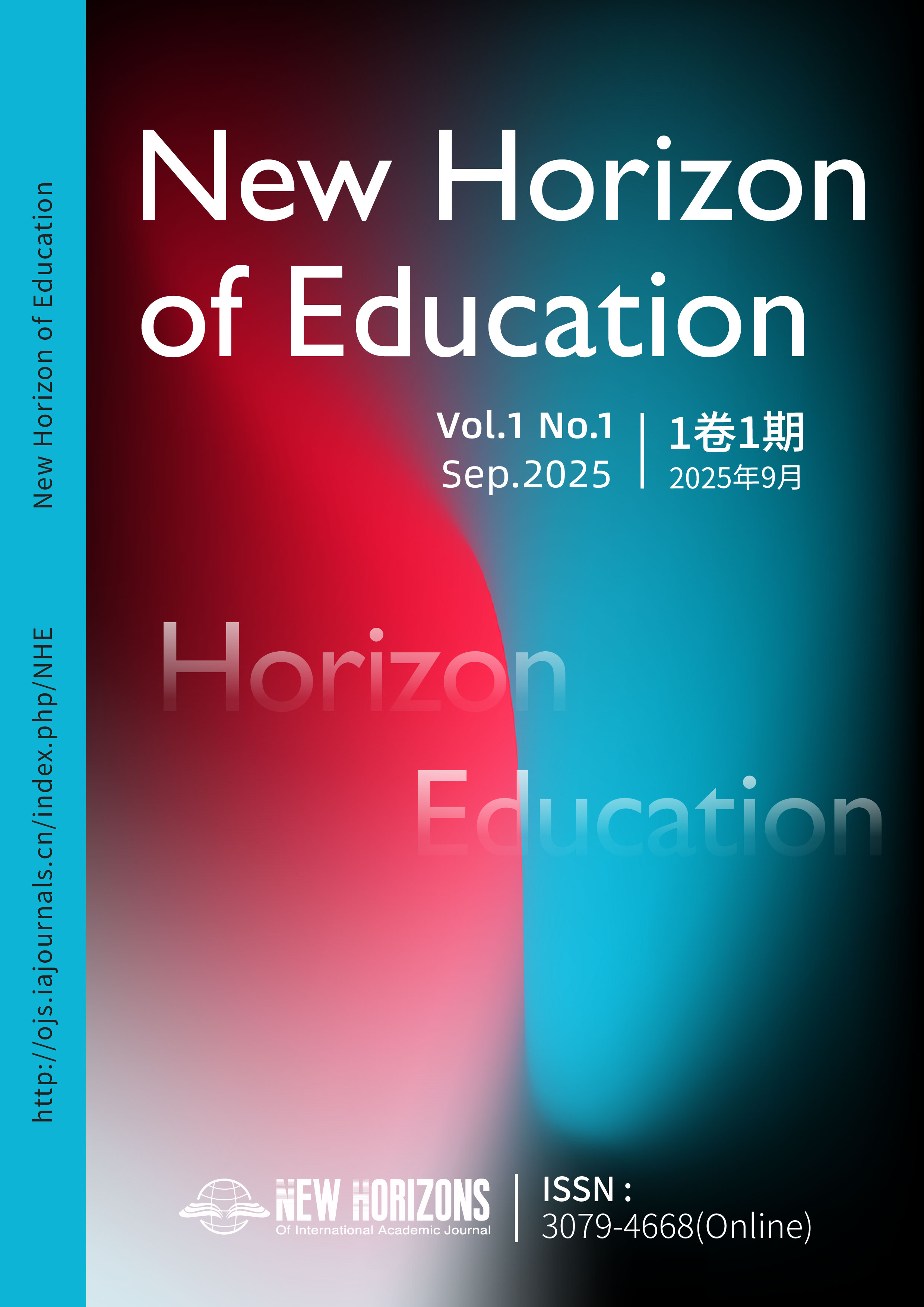[1] China Youth Daily. (2020). 2020 China College Student Health Survey Report (Full Text).
[2] Wei, X. (2012). The relationship between subjective well-being and academic achievement among high school students. Huazhang, 000(017), 16.
[3] Zhang, S. L., Li, J. Q., & Liu, Y. Y. (2022). The influence of psychological capital on academic achievement among college students: The mediating role of subjective well-being. Contemporary Education Theory and Practice (2).
[4] Lyubomirsky, S., King, L. A., & Diener, E. (2005). The benefits of frequent positive affect. Psychological Bulletin, 131, 803-855. DOI: https://doi.org/10.1037/0033-2909.131.6.803
[5] Wright, T. A., Cropanzano, R., Denney, P. J., & Moline, G. L. (2002). When a happy worker is a productive worker: A preliminary examination of three models. Canadian Journal of Behavioural Science, 34, 146-150. DOI: https://doi.org/10.1037/h0087165
[6] Fox, S., & Spector, P. E. (2000). Relations of emotional intelligence, practical intelligence, general intelligence, and trait affectivity with interview outcomes: It's not all just ‘G’. Journal of Organizational Behavior, 21, 203-220. DOI: https://doi.org/10.1002/(SICI)1099-1379(200003)21:2<203::AID-JOB38>3.0.CO;2-Z
[7] Kang, N. N., & Wang, E. D. (2021). The influence of subjective well-being on residents' environmental behaviors. (2017-5), 82-93.
[8] Fredrickson, B. L. (2001). The role of positive emotions in positive psychology. American Psychologist, 56, 218-226. DOI: https://doi.org/10.1037//0003-066X.56.3.218
[9] Zhao, K., Gao, C. S., Lai, Y., & Sun, L. T. (2018). The moderating role of happiness and social support in the relationship between gratitude and academic achievement among secondary school students. Chinese School Health, 39(3), 3.
[10] Zhu, Y. (2020). Can academic achievement and Student Well-being Coexist? An Empirical Analysis Based on Students from Four Chinese Provinces in PISA 2018. Chinese Journal of Education, 1, 7.
[11] Fan, R. J. (2015). The mediating role of emotion regulation in the relationship between academic emotion in mathematics and psychological well-being: A study of high school students. (Doctoral dissertation, Tianjin Normal University).
[12] Gilman, Rich, and E. Scott Huebner. "Characteristics of adolescents who report very high life satisfaction." Journal of youth and adolescence 35.3 (2006): 293-301. DOI: https://doi.org/10.1007/s10964-006-9036-7
[13] Gao, L. Y., & Wu, H. (2023). The relationship between subjective well-being and academic achievement among 145 adult students majoring in pharmacy in a higher education institution. Chinese School Physician, 37(6), 435-438.
[14] De Fruty, F., & Mervielde, I. (1996). Personality and interests as predictors of educational streaming and subjective well-being. European Journal of Personality, 10, 405-425. DOI: https://doi.org/10.1002/(SICI)1099-0984(199612)10:5<405::AID-PER255>3.0.CO;2-M
[15] Gui, Y., & Xu, B. H. (2003). The relationship among learning self-efficacy, learning 36 strategies, and academic achievement among secondary school students. Journal of Zhejiang University: Science Edition, 30(4), 4.
[16] Diener, E., Shu, E. M., Lucas, R. E., & Smith, H. E. (1999). Subjective well-being: Three decades of progress. Psychological Bulletin, 125, 276-302. DOI: https://doi.org/10.1037//0033-2909.125.2.276
[17] Sheldon, K. M., & Kasser, T. (2001). "Getting older, getting better": Personal strivings and psychological maturity across the life span. Developmental Psychology, 37, 491–501. DOI: https://doi.org/10.1037//0012-1649.37.4.491
[18] Diener, E., Emmons, R. A., Larsen, R. J., & Griffin, S. (1985). The Satisfaction With Life Scale. Journal of Personality Assessment, 49, 71-75. DOI: https://doi.org/10.1207/s15327752jpa4901_13
[19] Watson, D., Clark, L. A., & Tellegen, A. (1988). Development and validation of brief measures of positive and negative affect: The PANAS scales. Journal of Personality and Social Psychology, 54, 1063-1070. DOI: https://doi.org/10.1037//0022-3514.54.6.1063
[20] Fredrickson, B. L., Mancuso, R. A., Branigan, C., & Tugade, M. M. (2000). The undoing effect of positive emotions. Motivation and Emotion, 24, 237-258. DOI: https://doi.org/10.1023/A:1010796329158
[21] Liu, W., Shi, Z., Zhang, X., Wang, J., Xie, S., & Zhang, J. (2014). The relationship between job characteristics, work engagement, and subjective well-being among clinical psychiatric staff. Chinese Journal of Clinical Psychology, 22(2), 4.
[22] Diener, E., Ng, W., Harter, J., & Arora, R. (2010). Wealth and happiness across the world: Material prosperity predicts life evaluation, whereas psychosocial prosperity predicts positive feeling. Journal of Personality and Social Psychology, 99, 52-61. DOI: https://doi.org/10.1037/a0018066
[23] Zhang, X. H., Liu, L. Q., Liu, H. Y., & Liu, N. (2022). The relationship between adolescents' daily positive emotional experiences and life satisfaction: A moderated mediation model. Chinese Journal of Health Psychology, 30(8), 6.
[24] Guo, S. R., Wu, X. X., Guo, Y. Q., Wang, L. L., & Tang, S. Y. (2011). The influence of ruminative thinking on negative and positive emotions among college students: A case study of loneliness and emotional intelligence. Psychological Development and Education, 27(3), 8.
[25] Qiao, T. (2010). The relationship between college students' subjective well-being, academic achievement attribution, and employment pressure. (Doctoral dissertation, East China Normal University).
[26] Oishi, S., Diener, E., & Lucas, R. E. (2007). The optimum level of well-being: Canpeople be too happy? Perspectives on Psychological Science, 2, 346-360. DOI: https://doi.org/10.1111/j.1745-6916.2007.00048.x
 PDF (英语)
PDF (英语)
